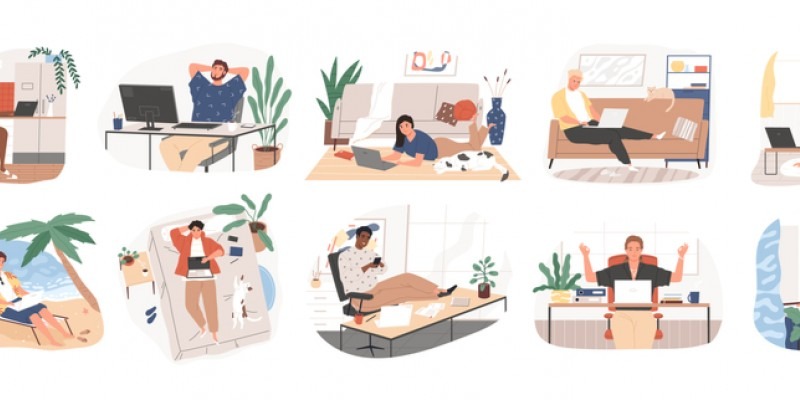
Six months ago, “working from home today” was greeted with a snigger and the hint that it was just an excuse for someone to pinch an unofficial day off. Not anymore. In fact, for many, the concept of going into the office has become unthinkable.
Every business has had to move with extraordinary speed to cope with short term enforced changes to working practices, but now they are contemplating how things are going to be arranged in the medium to long term.
It might be that some level of working from home will become the norm, with a couple of days in the office only for specific things like team meetings, brainstorming sessions and the like. Or, once a vaccine is available, will all this seem like an aberration and people will revert to the old 9–5 routine?
There’s no doubt that some people have actually preferred the working from home arrangements, avoiding the commute, being able to work flexibly to suit themselves and saving time and money in travelling around. But they probably live in a nice house with a garden and enough space to organise a home office.
On the other hand, it’s a very different story for young people living in shared houses, people coping with the demands of childcare or struggling with the pressures brought on by social isolation. Some Bath Chamber members have been making arrangements to allow the worst affected to go into the office, but their numbers have to be limited by the available space.
Some senior managers have confessed to personally disliking working from home and they are worried about the impact the loss of informal connections between staff will have. Individuals can only do so much on their own and there’s a real value in team working, but is it possible to keep that going with only video conferencing?
Face to face meetings are a crucial part of business. One of our local MPs made the great point that quite often issues could be settled in a brief chat before a meeting or in a quiet word afterwards. And an accountant said he quite often learned more about a client by their body language in a face to face meeting than from what they actually said – something that wasn’t so easy on a screen.
Isolation can also be a threat to creativity. Of course, individuals can come up with brilliant ideas on their own, but so often it’s group thinking that pays dividends, with a variety of people developing and improving an original thought. There’s also the opportunity for someone to say something which sparks a completely fresh thought which takes a discussion off in an unexpected direction.
Younger staff run the risk of suffering most as they miss out on soaking up the knowledge and skills of more experienced colleagues and the guidance that will help them develop their own abilities.
Meanwhile businesses are changing their thinking to managing by outputs rather than simply counting hours. Some have found productivity has actually gone up in some cases, but not in others where people have not been good at self-scheduling.
So, in short there are a wide range of issues to consider and it’s unlikely there will be a one size fits all solution. But over the coming months the best businesses will work out what the flexible future looks like and they will reap the rewards.
- Log in to post comments
